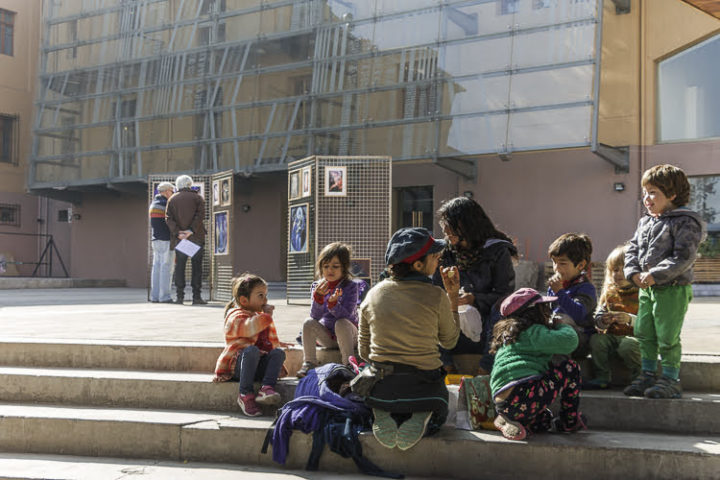Rights from the beginning is the slogan coined by the World Organization for Early Childhood Education – OMEP – which works in association with the Latin American Campaign for the Right to Education – CLADE – since a few years ago, for the political advocacy for the Right to Education of boys and girls, in their early childhood (from birth to 8 years old).
OMEP has been working for 72 years in the recognition and affirmation of children’s citizenship, developing several lines of action that synergistically interweave political advocacy with the construction and democratization of pedagogical knowledge, proposals addressed to educators, and actions towards girls, young children and their families.
On the second day of CLADE XI Regional Assembly, the experience developed in the Latin American Region by some members of the different national committees was shared, aiming at communicating OMEP’s political, pedagogical and scientific advocacy work linked to the full exercise of the human right to education in early childhood.
The aim was to share the experience of political dialogue and construction at the local, national and regional levels, for the follow-up and effective achievement of SDG 4. To propose lines of action and criteria for the construction of local and national public policies in favor of early childhood, its care and education. Contextualize the analysis and proposals for the realization of the right to education during early childhood from a comprehensive perspective, within the framework of the pandemic and post-pandemic.
Desireé López de Maturana, OMEP Vice President for Latin America, opened the session by referring to strategic planning for policy advocacy and knowledge building on the right to education in early childhood.
She was followed by Iliana Lo Priore, who also acted as hostess of the entire panel, from OMEP Venezuela, to address the issue of pedagogical advocacy in Early Education Teaching Policies. She brought to mind the words of Paulo Freire: “Every educational act is a political act”. Alicia Milán, from OMEP Uruguay, then took the floor and related the Opening Experience of ECCE in times of pandemic, illustrating how classes were returned to face to face in her country and how several Ministries, Municipalities and social organizations worked together.
On behalf of OMEP Bolivia, Patricia Hurtado spoke, who developed the experience of political construction of intersectoriality and key issues in ECCE. She also referred to the problems of gender and stereotyped roles when dealing specifically with early childhood care and education. Ulina Mapp, from OMEP Panama, continued by speaking about the inclusion of the Afro-Latin American culture in childhood policies in our continent, which has historically made the Afro-descendant culture invisible to the extent that those who recognize themselves in it only come to do so as adults. Then came the turn of Roberto Mauro Gurgel, for OMEP Brazil, who dedicated his words to the construction of public policy on children at the local level, through networking among municipalities, governorships and states.
Silvana Brambilla, on behalf of OMEP Paraguay, referred to the direction and experiences of Early Childhood Education policies, before concluding Mercedes Mayol Lassalle, on behalf of OMEP World, who focused her words describing the history of OMEP’s political advocacy work, its complementation in recent years with CLADE, the lessons learned and the joint efforts made, as well as her new position as President of the organization at world level that allows her to implement from there a Latinamerican perspective towards the world.
After a beautiful video, the session ended with the words of Desirée López de Maturana, thanking the Latin American Campaign for the Right to Education.










